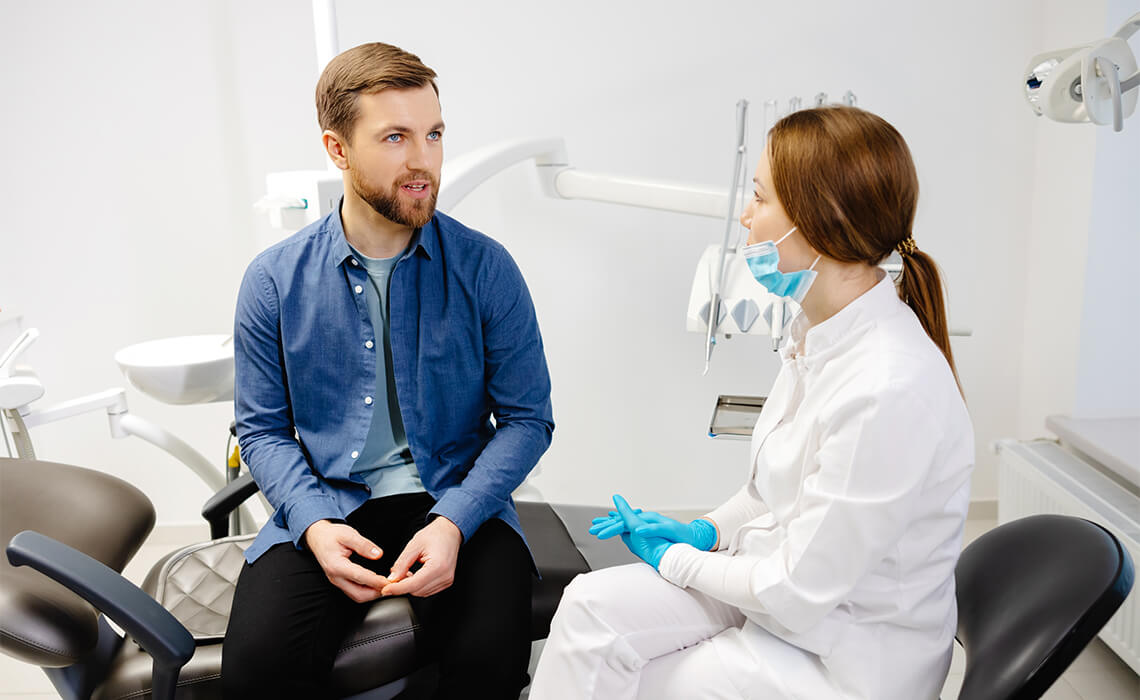When you think about visiting the dentist, you probably picture cleanings, fillings, or maybe even braces. But did you know that your dentist can play a critical role in improving your sleep? Dentists trained in dental sleep medicine, such as Dr. Shaina Shah, are helping patients breathe better at night by providing a non-invasive, effective solution to manage sleep-related breathing disorders like snoring and obstructive sleep apnea (OSA).
The American Academy of Dental Sleep Medicine (AADSM) highlights the important role dentists play in tackling the public health crisis of sleep apnea, which affects an estimated 23.5 million adults in the U.S.
Here’s what you need to know:
Why Is Sleep Apnea Such a Big Deal?
Sleep apnea is more than just loud snoring—it’s a condition where your airway collapses or becomes blocked during sleep, leading to breathing pauses and poor oxygen flow. Left untreated, it can increase the risk of serious health issues like high blood pressure, heart disease, stroke, type 2 diabetes, and even diminished quality of life.
How Can Dentists Help?
Dentists trained in dental sleep medicine work closely with physicians to manage sleep apnea and snoring using oral appliance therapy (OAT). These custom-fitted devices are worn during sleep and gently reposition the lower jaw to keep the airway open.
According to the AADSM, dentists are uniquely positioned to screen for sleep-disordered breathing during routine exams. Using tools like questionnaires and airway evaluations, they can identify patients at risk and refer them to physicians for a proper diagnosis. Once diagnosed, a qualified dentist can craft a custom oral appliance to help improve sleep and overall health.
What Makes a Dentist Qualified?
Providing oral appliance therapy isn’t as simple as fitting a mouthguard. The AADSM emphasizes that dentists must receive specialized training in dental sleep medicine to ensure the treatment is effective and safe. Dr. Shah is recognized as a Diplomate of the American Board of Dental Sleep Medicine and has completed countless hours of continuing education specifically in dental sleep medicine and staying up-to-date with the best practices. Dentists also collaborate with physicians to monitor treatment outcomes and manage side effects like jaw discomfort or tooth movement.
Why Oral Appliances Work
Oral appliances are often prescribed for patients with mild to moderate sleep apnea or for those who struggle with CPAP (continuous positive airway pressure) machines. They’re compact, easy to use, and effective in reducing snoring and improving sleep quality. Studies have shown that when fitted and monitored by trained dentists, these appliances can make a significant difference in patients’ health and well-being.
The Bigger Picture
Dentists aren’t replacing physicians—they’re working alongside them to create a team-based approach to managing sleep apnea. This collaboration ensures patients get the best possible care, from diagnosis to long-term treatment success.
If you or someone you know struggles with snoring or sleep apnea, talk to your dentist about oral appliance therapy. With the right care and teamwork between dentists and physicians, better sleep—and better health—could be just an appointment away!
Want to learn more about how oral appliances can help you sleep better? Contact Essex Dental Sleep Center today for a consultation!
Addy N, et al. Policy Statement on a Dentist’s Role in Treating Sleep-Related Breathing Disorders. Journal of Dental Sleep Medicine. 2018; 5(1): p. 25-26.
